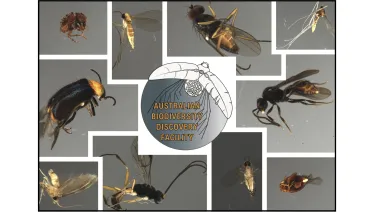Hierarchical occupancy-detection modelling
This 2-day workshop will cover the philosophy of the occupancy-detection modelling framework.
Speakers
Event series
Content navigation
RegisterDescription

Workshop outline
Detection is often imperfect in wildlife surveys. Disregarding imperfect detection can lead to biased estimation of species occurrence. This can be a problem in different contexts. For instance, when monitoring, relevant temporal trends can be missed or spurious ones detected. Imperfect detection can also lead to wrong inference about environmental relationships in species distribution models, and therefore to poor mapping of species distributions.
In this 2-day workshop, we will cover the philosophy of the occupancy-detection modelling framework. These are methods to estimate species occupancy while accounting for imperfect detection.
We will cover methods for modelling occupancy patterns and dynamics, including models for multiple species from which diversity metrics such as species richness can be derived. We will spend about 75% of the time in lectures, and will dedicate the rest to exercises where models will be fit using the R package unmarked, and in the Bayesian framework using the BUGS language.
Presenters: Gurutzeta Guillera-Arroita and José J. Lahoz-Monfort
Preliminary schedule
Start - 9.30am; Morning tea - 11am (15mins); Lunch - 1pm (45 mins); Afternoon tea - 3.30pm (15 mins); Finish - 4.45pm.
Day 1:
- Species Occupancy & Species Distribution Models - Imperfect detection.
- A decade of hierarchical occupancy-detection models and related methods: overview.
- Intro to statistical inference: maximum-likelihood and Bayesian methods.
- Fitting static occupancy models in unmarked and BUGS.
- Study design, data requirements and the value of simulations.
Day 2:
- More about the detection process: time to detection and false positives.
- From occupancy patterns to occupancy dynamics: the theory.
- Fitting dynamic occupancy models in unmarked and BUGS.
- From single species to multiple species: the theory.
- Fitting multispecies occupancy models in BUGS.
Information for participants
- Some familiarity with R and basic statistical modelling (e.g. regression, GLMs) will be assumed.
- Basic BUGS knowledge desirable, but not a must.
- Please bring your own laptop to the workshop with R, RStudio and JAGS 4.0 installed.
- For non-ANU participants, guest WiFi has been arranged, but it’s preferable that you come to the workshop with all the necessary software and files downloaded (these will be emailed to registered participants).
- Parking at ANU is often hard to find after 9am, so we suggest being a bit early (there’s a cafe in the bottom of the nearby Robertson Building, Bldg 46).
Registration
$25 per person for the 2-day workshop (including light lunches and morning and afternoon teas).
Places are stictly limited and the registration site will say "sold out" once the quota is filled. Please contact claire.stephens@anu.edu.au to be put on the waiting list.
* Please note: According to ANU Finance, ANU attendees shouldn't pay for ANU activities (which includes CBA events) using an ANU Purchase Card. Please contact claire.stephens@anu.edu.au for the GLC charge code to which the workshop registration fee can be transferred to from your designated GLC. You will then be provided with a "Promotion code" to use when you register. Apologies for the inconvenience.
Location
Sciences Teaching Building Bldg 136, Linnaeus Way, Rm S2 (top floor), ANU




